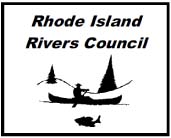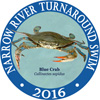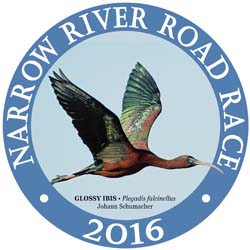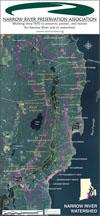
Top Ten Tips on how Watershed residents can personally make a difference in improving the water quality of the Narrow RiverThough it takes a somewhat humorous approach by using the format of David Letterman's familiar "Top Ten" lists, the subject is very serious. All the efforts to date--by NRPA, R. I. Department of Environmental Management, and other organizations--will be much more successful if individual residents take personal responsibility for protecting the River. We know that there are problems with pollution, especially from high levels of coliform bacteria (the "germs" found in raw sewage). Here are the details: 9. DO inspect and pump your septic tank regularly: A well-maintained septic system is much less likely to pollute the groundwater or the River. If you can't tie in to the town sewers because they don't reach your street, the next best thing is to have your septic tank pumped and system inspected at least once every two years. 8. DON'T use lawn fertilizers or herbicides: One effect of sewage pollution on the River is to add excess nutrients (especially nitrogen), which lead to increased growth of algae. This decreases water clarity and, when the algae die and decompose, it uses up the oxygen in the water. If oxygen levels drop too much, fish and other animals can no longer survive and the water could end up smelling like rotten eggs. Lawn fertilizers are never as effective as the TV says; however, if you really need to feed your lawn or garden, please take care not to apply excessive amounts which will wash into the River with the first rain. Herbicides and pesticides are toxic chemicals; follow the directions carefully and take special care to keep them out of the River. 7. DON'T dump lawn clippings, leaves or trash into the River: Besides making an unsightly mess, decomposing yard waste will use up the oxygen just the same as decomposing sewage or algae. A good compost pile will do double-duty as a place to dump your yard waste and as a source for a great addition to your garden soil. 6. DO operate watercraft responsibly: Make sure not to spill gas or oil into the River and make sure your engine is properly maintained to minimize pollution. Follow the boating regulations regarding speeds and no-wake zones; besides being a threat to the safety of other users of the River and just downright rude, wakes cause erosion of the River banks and destruction of habitat. 5. DO keep pet waste away from the River and storm drains: Coliform bacteria are found in the feces of all warm-blooded animals. Modern sewer systems do a good job of treating human waste but not many dogs use the toilet. Pet wastes in the streets or on lawns do not break down readily and they wash into the storm drains, then directly into 4. DON'T feed waterfowl: One surprising result of the recent DEM study of bacteria levels in the River was that geese and ducks are probably a major source of fecal bacteria, especially in the Mettatuxett section of the River. Don't encourage geese and ducks to concentrate or remain in one location by feeding them. 3. DON'T put anything down the sink that you wouldn't eat or drink: Protect your investment in your septic system or town sewer system by not putting in anything which might harm it or the waterway into which it eventually runs. A good rule of thumb is that the only things which should go down the drain or toilet are (1) something you've already eaten or drunk, (2) something you'd be willing to eat or drink and (3) toilet paper. 2. DON'T dump anything down storm drains: The storm drain in your street is one end of a pipe that leads straight to the River; everything that goes into the drain (whether you put it there, or just in the street) ends up in the River almost immediately. When you change the oil in your car, take the used oil to Rose Hill for recycling. Don't let antifreeze, gasoline or any other chemical spill in your yard or the street; make sure to dispose of them properly. 1. DO report suspected problems to RI DEM: If you see something that doesn't look right to you, let somebody know about it. You can call RI DEM at 401-222-1360 or 800-CLEANRI, or the local authorities in your town, or NRPA's office at 401-783-6277. The River and your neighbors will appreciate it. |
Remembering
Jon Boothroyd Follow us
on Facebook  NRPA is a member of the R.I. Rivers Council and has served as the Designated Watershed Council for Narrow River since 2002. NRPA Endowment Fund offers planned giving options
Narrow River Notes
|




